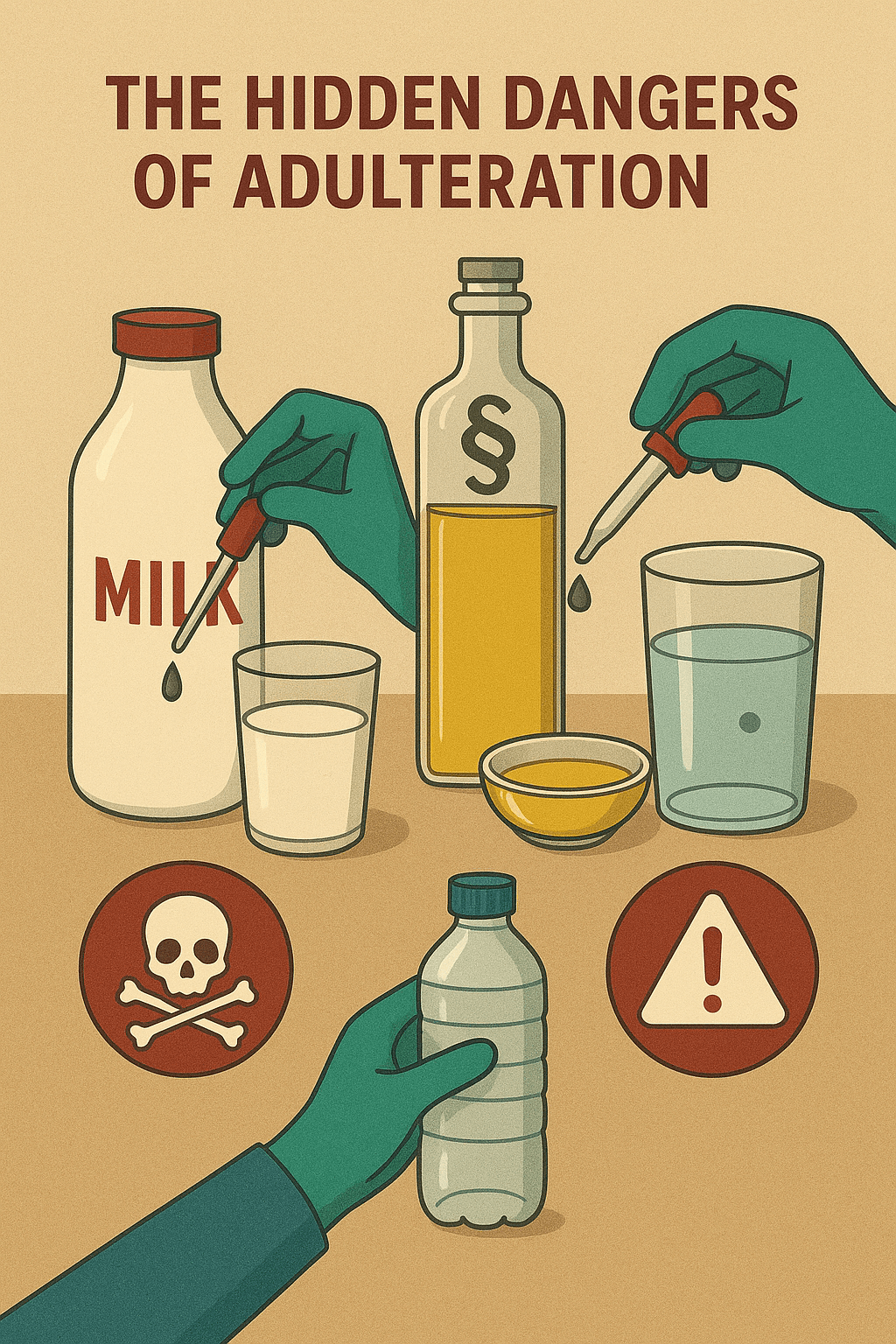The Hidden Dangers of Adulteration: Milk, Oil, and Water
Adulteration is a serious issue that affects the quality and safety of various products, including milk, oil, and water. The practice of adding inferior or harmful substances to these essential commodities can have severe consequences for human health. In this blog, we’ll explore the types of adulteration, their effects, and ways to prevent them.
Types of Adulteration
1. Milk Adulteration: Common adulterants in milk include water, urea, detergents, and even hazardous chemicals like formalin. These substances can cause serious health problems, including kidney damage, cancer, and other diseases.
2. Oil Adulteration: Adulterants in oil can include cheaper oils, artificial flavorings, and even toxic substances like argemone oil. Consuming adulterated oil can lead to health issues like diarrhea, edema, and even death.
3. Water Adulteration: Water adulteration can occur through contamination with bacteria, viruses, or other pollutants. This can lead to waterborne diseases like cholera, typhoid, and dysentery.
Effects of Adulteration
1. Health Risks: Adulterated products can cause serious health problems, including food poisoning, organ damage, and even death.
2. Economic Impact: Adulteration can also have significant economic implications, including loss of consumer trust and damage to businesses.
3. Social Impact: Adulteration can undermine the integrity of the food industry, leading to a loss of faith in the products we consume.
Ways to Prevent Adulteration
1. Buy from Trusted Sources: Purchase products from reputable manufacturers and suppliers to minimize the risk of adulteration.
2. Check for Certification: Look for certifications like ISO, FSSAI, or other relevant standards that ensure the product meets quality and safety standards.
3. Conduct Regular Tests: Regular testing of products can help detect adulteration and ensure compliance with safety standards.
4. Raise Awareness: Educate consumers about the risks of adulteration and the importance of choosing high-quality products.
What Can Consumers Do?
1. Be Vigilant: Check the product’s packaging, labeling, and certification before purchasing.
2. Report Suspicious Products: If you suspect a product is adulterated, report it to the relevant authorities.
3. Choose Reputed Brands: Opt for well-known and reputable brands that prioritize quality and safety.
4. Stay Informed: Stay up-to-date with the latest news and developments on adulteration and product safety.
Conclusion
Adulteration is a serious issue that affects the quality and safety of various products, including milk, oil, and water. By understanding the types of adulteration, their effects, and ways to prevent them, we can take steps to protect our health and well-being. As consumers, it’s essential to be vigilant and informed, choosing high-quality products from trusted sources. Together, we can create a safer and more transparent food industry.


